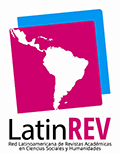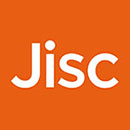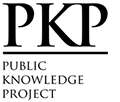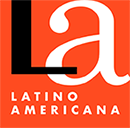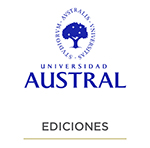Legal protection of artificial intelligence products in the intellectual property system
Abstract
Traditionally for “copyright”, “author” is the person who creates an original work, from the moment of its creation, without the need for registration or formalities. This special regime is constitutionally protected in various legal systems. On the other hand, today there are artificial intelligence algorithms that, “autonomously”, can create what could be considered works of the spirit if they were carried out by human beings. However, under the current conceptions, ownership of copyrights on products made by "non-humans" could not be attributed. Hence, the objective of this work is to determine, from the analysis of Chilean law (with some references to comparative law) whether the constitutional mandate to protect intellectual property implies that said ownership should be recognized or, failing that, that new intellectual rights should be created for artificial intelligence products.
Downloads
References
Antequera Parilli, R. (2007). Estudios de derecho de autor y derechos afines. Madrid: Editorial Reus.
Cándano Pérez, M., y Moreno Cruz, M. (2019). Propiedad intelectual en Cuba. Una mirada crítica a su reconocimiento constitucional. Revista Chilena de Derecho y Tecnología, 8(1), 133-165. http://dx.doi.org/10.5354/0719-2584.2019.51115
Colombet, C. (1997). Grandes principios del Derecho de Autor y los Derechos Conexos en el mundo. Madrid: UNESCO.
Copeland, J. (1993). Artificial Intelligence: Philosophical Introduction. Nueva Jersey: Wiley-Blackwell.
Cuerva de Cañas, J. (2018). La propiedad intelectual en el mundo digital. En Piñar Mañas, J. L. y De la Quadra-Salcedo, T. (Dirs.), Sociedad Digital y Derecho (pp. 719-739). Madrid: Ministerio de Industria, Comercio y Turismo.
Derclaye, E. (2014). Assessing the impact and reception of the Court of Justice of the European Union case law on UK copyright law: what does the future hold? Revue Internationale du Droit d’auteur, (240), 5-117.
Díaz, J. (2016). Daddy’s Car: la inteligencia artificial como herramienta facilitadora de derechos de autor. Revista La Propiedad Inmaterial, (22), 83-100.
Díaz de Lezcano Sevillano, I. (2008). Las reformas de la propiedad intelectual de 2006. En Macías Castillo, A. (Coord.), El derecho de autor y las nuevas tecnologías: reflexiones sobre la reciente reforma de la Ley de Propiedad Intelectual (pp. 135-152). Madrid: La Ley.
European Patent Office (EPO). (2020) Grounds for the decision (Annex) Application Nr.18275174.3. https://register.epo.org/application?documentId=E4B63OBI2076498&number=EP18275174&lng=en&npl=false
Fazio, A. (2019). Fundamentos conceptuales de la propiedad intelectual. Liberalismo y crítica. Ideas y Valores, 68(170), 121-145.
Flow Machines. (2019). AI Makes Pop music in the style of any composer (the Beatles too!). http://www.flow-machines.com/ai-makes-pop-music/
Gervás, P. (2018). La creatividad computacional como frontera de la inteligencia artificial y su potencial de impacto sobre la creación literaria. https://www.accioncultural.es/media/2018/ebook/Anuario/7PabloGervas.pdf
Guadamuz, A. (2016). The monkey selfie: copyright lessons for originality in photographs and internet jurisdiction. Internet Policy Review, 5(1), 1-12.
Guadamuz, A. (2017). La inteligencia artificial y el derecho de autor. Revista de la OMPI, (5). https://www.wipo.int/wipo_magazine/es/2017/05/article_0003.html
Lacruz Mantecón, M. (2018). Potencialidades de los robots y capacidades de las personas. En Rogel Vide, C. (Coord.), Los robots y el Derecho (pp. 25-77). Madrid: Editorial Reus.
Le Chapelier, I-R-G. (1791). Rapport fait par M. Le Chapelier, sur la pétition des auteurs dramatiques dans la séance du jeudi 13 janvier 1791, avec le Décret rendu dans cette séance. Paris: Imprimerie nationale. https://gallica.bnf.fr/ark:/12148/bpt6k48171h/f18.image
Lipszyc, D. (2001). Derecho de Autor y Derechos Conexos. Buenos Aires: UNESCO.
López de Mántaras, R. (2016). La inteligencia artificial y las artes. Hacia una creatividad computacional. https://www.bbvaopenmind.com/articulos/la-inteligencia-artificial-y-las-artes-hacia-una-creatividad-computacional/
Márquez, M. (2001). El requisito de la originalidad en los derechos de autor. http://www.uaipit.com/uploads/publicaciones/files/0000001974_La%20originalidad-Art-uaipit2.pdf
Microsoft Reporter (2016). The Next Rembrandt. https://news.microsoft.com/europe/features/next-rembrandt/
Navas Navarro, S. (2018). Obras generadas por algoritmos. En torno a su posible protección jurídica. Revista de Derecho Civil, V(2), 273-291.
Navas Navarro, S. (2019). Creación Original e Inteligencia Artificial. En Navas Navarro, S. (Dir.), Nuevos desafíos para el Derecho de Autor. Robótica, Inteligencia Artificial, Tecnología (pp. 27-45). Madrid: Editorial Reus.
Organización Mundial de la Propiedad Intelectual (OMPI). (2020a). Draft Issues Paper on Intellectual Property Policy and Artificial Intelligence. https://www.wipo.int/meetings/en/doc_details.jsp?doc_id=470053
Organización Mundial de la Propiedad Intelectual (OMPI). (2020b). Public Consultation on AI and IP Policy - Submissions. Query: Chile. https://www.wipo.int/about-ip/en/artificial_intelligence/submissions-search.jsp?type_id=&territory_id=36&issue_id=
Organización Mundial del Comercio (OMC). (1994). Acuerdo sobre los aspectos de los derechos de propiedad intelectual relacionados con el comercio. https://www.wto.org/spanish/tratop_s/trips_s/intel2c_s.htm
Parlamento Europeo (2017). Resolución del Parlamento Europeo, de 16 de febrero de 2017, con recomendaciones destinadas a la Comisión sobre normas de Derecho civil sobre robótica (2015/2103(INL)). http://www.europarl.europa.eu/doceo/document/TA-8-2017-0051_ES.html
Peñailillo Arévalo, D. (2007). Los bienes, la propiedad y otros derechos reales. Santiago de Chile: Editorial Jurídica de Chile.
Puyol, J. (2018). Robots: ¿Hacia un nuevo concepto de “personalidad jurídica”? https://confilegal.com/20181217-hacia-un-nuevo-concepto-de-personalidad-juridica/
Ríos Ruiz, W. (2001). Los sistemas de inteligencia artificial y la propiedad intelectual de las obras creadas, producidas o generadas mediante ordenador. Revista la propiedad inmaterial, (3), 5-13.
Rogel Vide, C. (2015). Estudios completos de propiedad intelectual. (Vol. V). Madrid: Editorial Reus.
Rogel Vide, C. (2018). Robots y personas. En Rogel Vide, C. (Coord.), Los robots y el Derecho (pp. 7-23). Madrid: Editorial Reus.
Saiz García, C. (2019). Las obras creadas por sistemas de inteligencia artificial y su protección por el derecho de autor. InDret Revista para el Análisis del Derecho. https://www.raco.cat/index.php/InDret/article/view/354489/446475
Sandoval López, R. (2006). Marcas comerciales: Contiene la Ley 19.039, sobre propiedad industrial, reformada por la Ley 19.996, de 2005. Santiago de Chile: Editorial Jurídica de Chile.
Valdés, C. (2016). Las obras del espíritu y su continente. Arquetipo, prototipo, bocetos y ejemplares; propiedades existentes al respecto. En Anguita Villanueva, L. A. (Coord.), Tensiones entre la propiedad intelectual y la propiedad ordinaria (pp. 7-30). Madrid: Editorial Reus.
Walker Echenique, E. (2014). Manual de Propiedad Intelectual. Santiago de Chile: Thomson Reuters ProView.
World Intellectual Property Organization (WIPO) (2016). Understanding industrial property. https://www.wipo.int/publications/en/details.jsp?id=4080
Yan, Li (2020). Court rules AI-written article has copyright. http://www.ecns.cn/news/2020-01-09/detail-ifzsqcrm6562963.shtml
Copyright (c) 2020 Revista Jurídica Austral

This work is licensed under a Creative Commons Attribution-NonCommercial-NoDerivatives 4.0 International License.
This license allows the copy, distribution, exhibition and representation of the work provided authorship is acknowledged and the work is properly quoted. Commercial use of the original work or the generation of derived works are not allowed.
The authors hereby guarantee the right to the first publication of the work to the Revista Jurídica Austral.













